Magazine: Once upon a time…Business Days 2018 (Part 1)
This year we invited partners to tell and listen to fairytales at the Business Days conference in Tapolca, which was organised in cooperation with the Chain Bridge Club. Between 25 and 28 September 700 participants were there to draw conclusions from the tales.

Zsuzsanna Hermann
managing director-editor-in-chief
Trade magazin
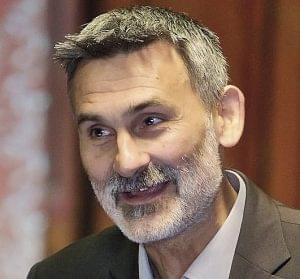
Father Feri Pál
Tuesday morning Trade magazin’s managing director and editor-in-chief Zsuzsanna Hermann welcomed participants and then gave the floor to Father Feri Pál, who talked about how we should remember our past and dream our future, so that we can be both successful and satisfied with our lives.
After the coffee break a macroeconomic roundtable discussion followed, moderated by communication consultant and trainer Szilvia Krizsó.

Dr. Ágnes Fábián
president
Branded Goods Association
Dr Ágnes Fábián, president of Branded Goods Association Hungary and managing director of Henkel Magyarország opined that the workforce shortage wasn’t critical in Hungary yet. She reckons that the main task for companies is to keep the workers they already have. Today it takes more effort for employers to keep blue-collar workers.

Ildikó Balázs
co-president
NTA
Ildikó Balázs, co-president of the National Trade Association and head of corporate affairs and quality at Auchan Retail Magyarország told: retail is in a more difficult situation than other sectors of the economy, and the most important steps to be taken are improving the level of vocational education and adapting the system of cafeteria benefits to the changes.

Ákos Kozák
managing director
GfK Hungária
Ákos Kozák, managing director of GfK Hungária revealed that there are approximately 30,000 workers missing from the retail sector. However, EU-level work efficiency would reduce the workforce shortage by 20-30 percent.
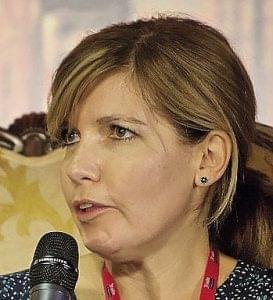
Réka Szőllősi
managing director
Federation of Hungarian
Food Industries
Réka Szöllősi, managing director of the Federation of Hungarian Food Industries spoke about the problem of certain industries strongly supported by the government ‘stealing’ workers from the food industry in some regions. In the food sector digitalisation can solve some of the labour force problem.
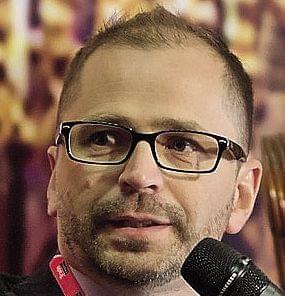
Lóránd Gál
SME head of region
Erste Bank
According to Lóránd Gál, SME head of region at Erste Bank, there are huge differences between regions as regards the workforce situation. Today a lot depends on the HR work a company has done in the last 5-10 years.

Anita Mekler
partner
Pricewaterhouse
Coopers
Anita Mekler, a partner of PricewaterhouseCoopers shed light on the fact that 30 percent of companies calculate with further growth, and 50 percent forecast that they can retain the current level of sales.
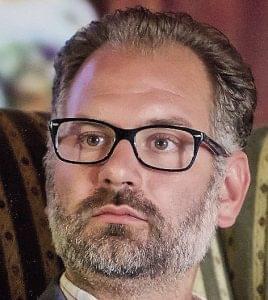
Bálint Zsinkó
managing director
HD Group
After the lunch break the next roundtable discussion was organised for the suppliers of retail chains – the moderator was Bálint Zsinkó, managing director of HD Group.
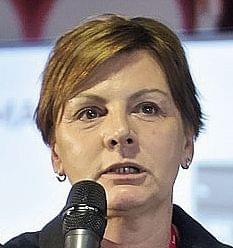
Katalin Pádár
client service director
Kantar Hoff man
Katalin Pádár, client service director of Kantar Hoffman was the first contributor, who gave a presentation about shopping trends and the market position of supermarkets. She told that price is still the most important buying decision making factor, but product quality and comfortable shopping are increasingly important.
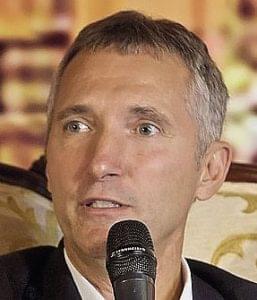
Zsolt Vuleta
managing director
Borsodi Brewery
Zsolt Vuleta, managing director of Borsodi Brewery pointed it out that the sales growth had finally started in the beer category too, although a bit later than in other categories. Shoppers are now less price-sensitive and more loyal to beer brands, plus they value high quality more.
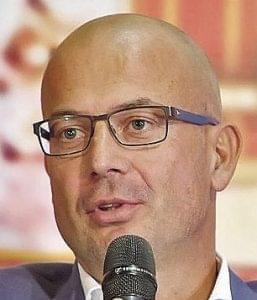
György Sóskúti
head of sales
Nestlé Hungária
György Sóskúti, head of sales at Nestlé Hungária said: families with an income below the average have finally started to take more money home. These people spend a large proportion of their income on food and now they want to enjoy the experience of premium shopping, too.
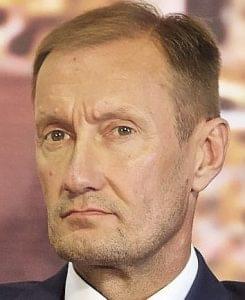
Ákos Perjés
general manager of marketing
and sales
Haribo
Ákos Perjés, general manager of marketing and sales at Haribo stressed that consumers have more money to reward themselves at the end of the shopping, e.g. with sweets, and they tend to opt for higher quality products when doing so than before.

Tamás Ács
sales director
Unilever
Tamás Ács, sales director of Unilever informed that sales of almost all of their products are growing in their categories. He thinks that when promoting products, manufacturers need to pay attention to the specific shopper needs when they visit the shops of a given retail chain.
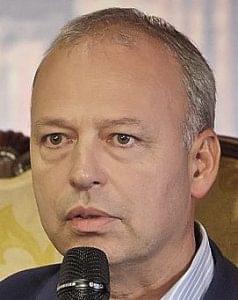
Gyenes András
ügyvezető igazgató
Scitec Nutrition
András Gyenes, managing director of Scitec Nutrition reported that in the previous 10 years the dietary supplement category had grown by two-digit numbers. The same trend is expected to continue in the years to come.

Gábor Árok
country manager
Monster Energy
Gábor Árok, country manager of Monster Energy told: energy drinks make up the most dynamically growing non-alcoholic drink category. Volume-wise there aren’t big changes in sales, it is the average price that is increasing.
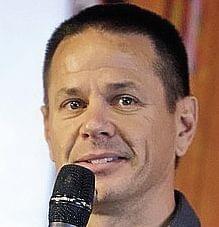
László Kerekes
managing director
Orbico
During the roundtable discussion László Kerekes, managing director of Orbico gave a presentation about how the work of a good distributor can produce great value from relatively low-volume businesses.

Sándor Baja
managing director
Randstad CZ, HU, RO
Sándor Baja, managing director of Randstad in the Czech Republic, Hungary and Romania moderated the next roundtable discussion, where the representatives of petrol station shops and pharmacies were present.
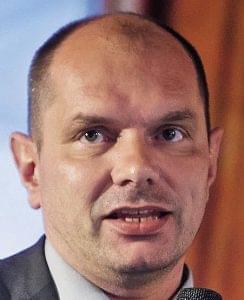
Erik Vágyi
sales director
Nielsen
Work started with Erik Vágyi, sales director of Nielsen giving a presentation about the latest trends and changes in consumption patterns. He made it clear that one of the beneficiaries of the latest trends and new shopper needs is the petrol station channel.
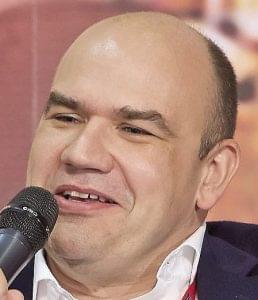
Gyúrós Péter
convenience retail manager
Shell Hungary
Péter Gyúrós, convenience retail manager of Shell Hungary told: thanks to new extraction technologies, oil companies won’t run out of petrol for a while. Shell is also establishing partnerships with car manufacturers.
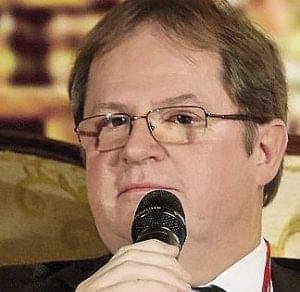
Tibor Balogh
managing director
OMV Hungária
Tibor Balogh, managing director of OMV Hungaria thinks that oil companies are looking at alternative fuels as a new business opportunity. His company cooperates with SPAR in operating supermarket-type shops at petrol stations.
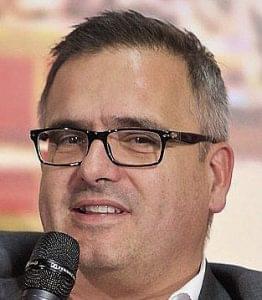
Dr. András Orosz
head of retail
MOL
Dr András Orosz, head of retail at MOL spoke about how the oil company approaches the future – focusing on mobility, for instance the Limo and the public transport programmes are good examples of this. He thinks that it tells a lot about the company that today MOL is the biggest café chain in Hungary!
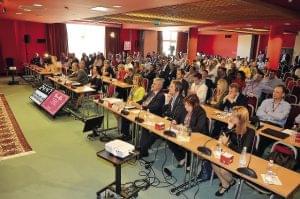
700 experts and professionals attended this year’s
Business Days between September 25–28

Sándor Mike
director of the motor fuel business
Auchan Retail Magyaroszág
Sándor Mike, director of the motor fuel business line at Auchan Retail Magyarország believes that the motor fuel segment is the cleanest market in Hungary at the moment. Every month an accredited laboratory test the fuels sold at Auchan filling stations.

Szabolcs Forgó
business development director
Patika Management
Szabolcs Forgó, business development director of Patika Management introduced their assortment: 6 percent of products are ‘other’ (drugstore) products, while drugs have a 2/3 share and OTC products are at 1/3. Sales-wise OTC products can constitute a breakout point for pharmacies.
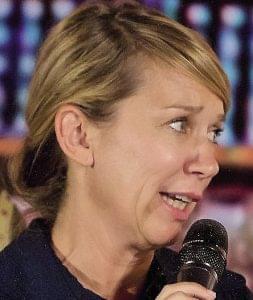
Judit Szalókyné Tóth
partner
Boyden
In the final roundtable discussion of the first day Boyden partner Judit Szalókyné Tóth was the moderator.

Tünde Turcsán
client service director
GfK Hungaria
Tünde Turcsán, client service director of GfK Hungária gave the keynote speech. She told that Hungarian households spend 31 percent of their total revenue on food and drinks, which is a very high proportion in a regional comparison. Shoppers are buying in new formats and on new platforms.

Ildikó Balázs
head of corporate affairs
and quality
Auchan Retail Magyarország
Ildikó Balázs, head of corporate affairs and quality at Auchan Retail Magyarország called attention to the chain’s new store opening concept. She told that the time had come for them to open supermarkets and superstores, adding that online and offline retail need to work in parallel.
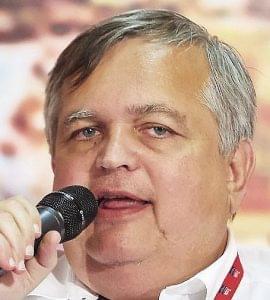
Zsolt Gyelán
vice president
CBA
Zsolt Gyelán, vice president of CBA was of the opinion that shoppers becoming more sophisticated in their taste can bring customers back to supermarkets. He thinks that in the next 3-5 years the majority of small shops will close for good.

László Hovánszky
managing director
METSPA
László Hovánszky, managing director of METSPA reckons that supermarkets must learn to build on their strengths. Auchan is now entering a market where there are more players and competition is stronger.
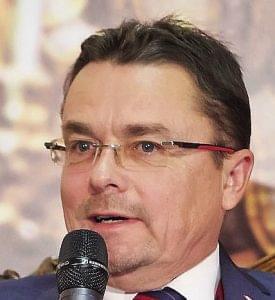
János Mezei
sales director
CO-OP Star
János Mezei, sales director of CO-OP Star believes that the No.1 goal is adapting rapidly to consumer needs. He explained that as discount supermarkets are expanding their product selection (mainly with fresh products), their efficiency reduces.

László Szili
commercial director
Reál
László Szili, commercial director of Reál expressed his opinion that every sales channel has its limits. The significance of the supermarket category is indicated by the fact that discount stores are starting to offer products and services that are characteristic of supermarkets, and not the other way round!

Révész Richárd Latin Trio’s concert on Tuesday night
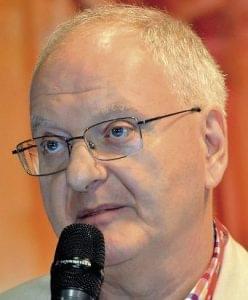
Gábor Karsai
deupty CEO
GKI
On Wednesday work started with Dr Gábor Karsai, deputy CEO of GKI Zrt. analysing Hungary’s economic situation. His view is that Hungary is now at its peak and economic growth has already started to slow down. Investment is very much dependent on EU funding which will decrease soon. He is afraid that critical years may come after 2020.
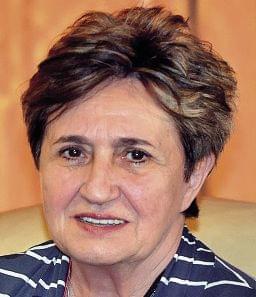
Dr. Mária Törőcsik
university professor
PTE
University professor Dr Mária Törőcsik asked the question – recalling Aesop’s fable The Hare and the Hound – whether we are running for our lives or only four our supper. She thinks companies need to pay attention to three things: consumers, non-consumers and trends. Shoppers are now smarter than before and don’t accept brand equity automatically.
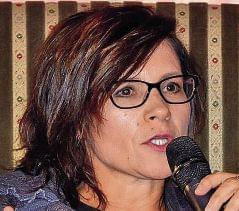
Szilvia Krizsó
communication consultant
A roundtable discussion followed, moderated by communication consultant Szilvia Krizsó.

Eszter Benedek
managing director
Hungarian Product
Nonprofit Kft.
Eszter Benedek, managing director of HUNGARIAN PRODUCT Nonprofit Kft. made it clear that their point of departure is always the consumer and the company sees positive trends. A recent survey has found that after price, quality and taste, place of origin is the fourth most important factor in choosing which food product to buy.

Péter Ondré
managing director
Agricultural Marketing
Centre
Péter Ondré, managing director of the Agricultural Marketing Centre stressed that Hungarian agriculture needs to undergo technological modernisation in the next few years if we want to capitalise on our existing advantages. He called attention to the fact that in the current situation, when there aren’t enough workers, young people must be convinced that it is cool and profitable working in the agri-food sector.
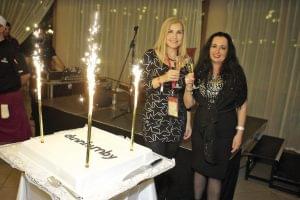
dunnhumby celebrating its 10th anniversary met its business partners
at the Business Days dinner on Tuesday

Endre Eölyüs
country manager
Mastercard Europe
Endre Eölyüs, country manager of Mastercard Europe spoke about the division in Hungarian retail trade: a small part of retailers have long-term plans, and they are investing and going digital, while the majority live from one day to another.
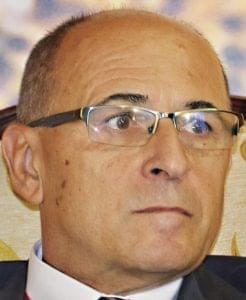
Gyula Vidács
president
Hungarian Franchise
Association
Gyula Vidács, president of the Hungarian Franchise Association opined that companies that work in services are already using a special approach to reach consumers – this is an important prerequisite of building a successful franchise. Retail chains still have a long way to go in this respect.
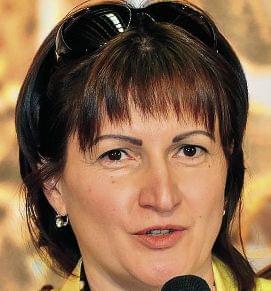
Katalin Neubauer
general secretary
Hungarian National
Trade Association
Katalin Neubauer, general secretary of the Hungarian National Trade Association stated: getting to know consumers and consumption habits is more important than it has ever been. She believes that Hungarian retailers need to catch up with the latest trends in terms of both technology and knowledge.

László Szilágyi
business consultant
ActionCOACH
In the next roundtable discussion the representatives of successful Hungarian enterprises were present. László Szilágyi, business consultant of ActionCOACH was the moderator.
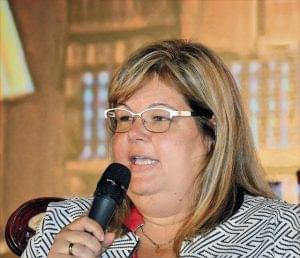
Krisztina Fleischmann
deputy general manager
of sales
Univer Product
Krisztina Fleischmann, deputy general manager of sales at Univer Product Zrt. remarked that they feel proud to be a Hungarian company in the market, but at the same time it is also difficult to compete with large multinational companies. Univer’s strategic products are made from Hungarian raw material.
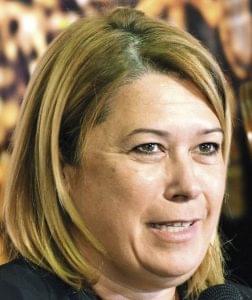
Katalin Korin
retail sales manager
Zwack Unicum
Katalin Korin, retail sales manager of Zwack Unicum Zrt. added that a company’s owners can decide how much brand building work they want to do and what the message will be. Unicum is spending a lot of time and money on the ‘Hungarianness’ of their brands.
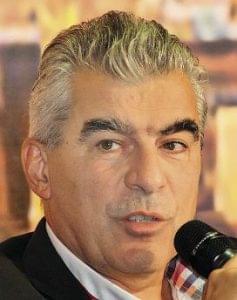
István Justin
managing director
Szamos Marcipán
István Justin, managing director of Szamos Marcipán Kft. said: it is important to popularise Hungarian brands in the confectionery product market, because their number is diminishing.

Norbert Schobert
owner
Norbi Update Lowcarb
Norbert Schobert, owner of Norbi Update Lowcarb told that campaigns and educational programmes have to be implemented to make consumers understand: by buying Hungarian they are doing something for their country. Price is still the No.1 decision-making factor and foreign manufacturers have an advantage because of the VAT difference. Eisberg and Zimbo are owned by Swiss company Bell Food Group, but both of them manufacture in Hungary, using mostly Hungarian product ingredients.

Zoltán Gazsi
managing director
Eisberg
Zoltán Gazsi, managing director of Eisberg revealed that vegetables sourced in Hungary are often more expensive than imported ones. The company shares its professional knowledge with others.

Hedvig Szakács
managing director
ZIMBO Perbál
Hedvig Szakács, managing director of ZIMBO Perbál informed that they manufacture and sell 97 percent of products in Hungary, and nearly 40 products bear the ‘processed in Hungary’ marking.

László Benedek
commercial and
marketing director
Viresol
The next roundtable discussion focused on wholesale and it was moderated by László Benedek, commercial and marketing director of Viresol.

Csaba Jászter
managing director
National Tobacco Shop Supply
Csaba Jászter, managing director of National Tobacco Shop Supply told about the tobacco product market that thanks to the integrated nature of the system of tobacco retail and recent government measures, the black market is in a much worse situation than before. The introduction of the Track&Trace system will cause great changes.

Attila Szabó
head of purchasing
CO-OP Hungary
Attila Szabó, head of purchasing at CO-OP Hungary explained that their wholesaler objective is to supply the shops belonging to the company’s own franchise system with products. Even more so because it is only them who supply more than 1,000 small villages with food products.
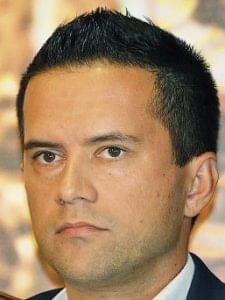
Zoltán Noszlopy
sourcing director
CBA
Zoltán Noszlopy, sourcing director of CBA and managing director of Partner Log spoke about the three legs CBA is standing on: Príma stores, franchise and wholesale. The buyers of the latter are mainly independent grocery stores.
 Barbecue party at Wednesday night featuring rock’n’roll star Miklós Fenyő
Barbecue party at Wednesday night featuring rock’n’roll star Miklós Fenyő

Dr. Richárd Andrejszki
CEO
Chef Market
Chef Market is a wholesaler with a HoReCa focus. CEO Dr Richárd Andrejszki shared his view that the Electronic Public Road Trade Control System (EKÁER), the VAT cut and the online connection of businesses’ invoicing systems with the National Tax and Customs Administration’s (NAV) system led to the whitening of the HoReCa sector.
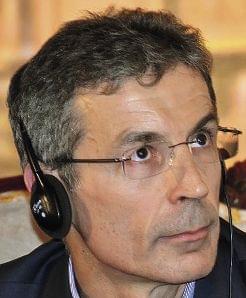
Stephane Maurin
purchasing director
METRO
METRO is more and more HoReCa-focused too, and purchasing director Stephane Maurin revealed that they primarily target professional buyers in Hungary. The company also supports Hungarian enterprises with services, e.g. more than 3,500 restaurants have a website made for them free of charge by METRO. There were also two presentations during the discussion.
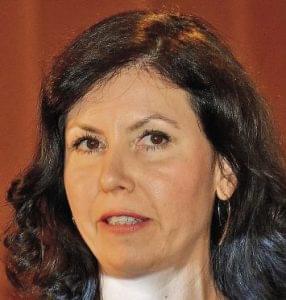
Judit Üveges
sales manager
Intrum
Judit Üveges, sales manager of Intrum spoke about credit management, while

Krisztina Vatai
business development director
GS1
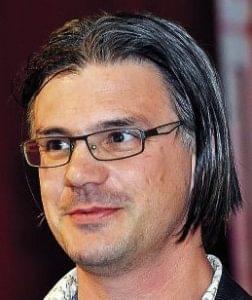
Gergely Köves
projekt manager
TE-FOOD International
Krisztina Vatai business development director of GS1 and Gergely Köves, project manager of TE-FOOD International introduced new ways of food and livestock tracking in the supply chain, using blockchain technology.

József Rácz
managing director
Prémium Kert
In the final roundtable discussion of the day the representatives of Hungarian-owned chains, franchise chains and national tobacco shops exchanged their opinions. This time the moderator was József Rácz, managing director of Prémium Kert and franchise owner of Vitamin Szalon.
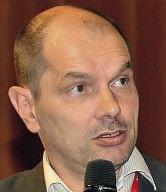
Erik Vágyi
sales director
Nielsen
Erik Vágyi, sales director of Nielsen gave the keynote speech. He underlined the fact that people having more money in their pockets doesn’t necessarily mean they are spending more. There is a premiumisation trend instead: shoppers are starting to buy higher quality products.
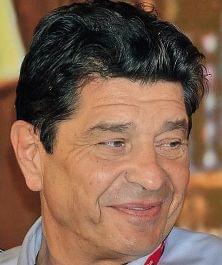
Zoltán Tóth
franchise managing partner
Trafik.hu
Zoltán Tóth, franchise managing partner of Trafik.hu informed that classic FMCG products are becoming more important in the product selection of national tobacco shops.

Sándor Nagy
online director
G’Roby
Sándor Nagy, online director of G’Roby opined that the basics of buying food wouldn’t change, there will be some kind of physical contact in the future too – but shops will have to serve consumers who are becoming more digital step by step.

Attila Szabó
head of purchasing
CO-OP Hungary
Attila Szabó, head of purchasing at CO-OP Hungary said that IT and logistics would decide the market competition.

László Szili
commercial director
Reál
László Szili, commercial director of Reál called attention to the problem of many small shops in rural areas losing customers due to urbanisation. If these small shops close, even more people will leave the villages and go to live in the city – a real Catch-22 situation…
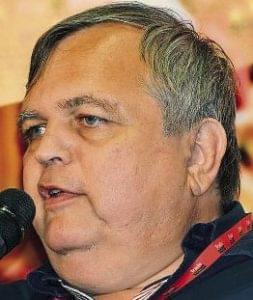
Zsolt Gyelán
vice president
CBA
Zsolt Gyelán, vice president of CBA said: a grocery shop can’t be operated profitably in villages with a population smaller than 3,000. Perhaps there will be automatic shops at these places in the future.
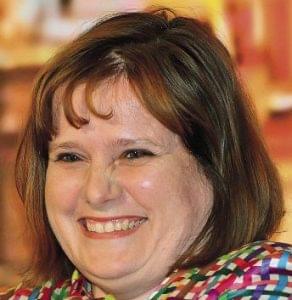
Gabriella Heiszler
managing director
SPAR Magyarország
Gabriella Heiszler, managing director of SPAR introduced the franchise-building SPAR Partner Programme. She reckons that shops in small villages that belong to a franchise network can be profitable even if less than 3,000 people live there.

Kovács Szabolcs
regionális termékfejlesztési
vezető
Mastercard Europe
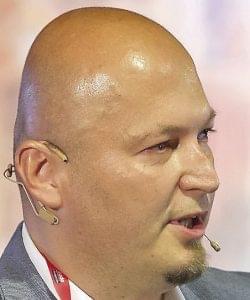
Szelei Szilárd
vezérigazgató
JCDecaux
Two presentations were given during the roundtable discussion: Szabolcs Kovács, regional product development manager of Mastercard Europe spoke about new ways of increasing the basket value, while Szilárd Szelei, CEO of JCDecaux introduced the image building opportunities offered by street furniture.
At the evening dinner the award ceremony of the ‘Retailer of the Year’ competition took place. This year two winners were announced: SPAR Hungary and Libri-Bookline Zrt.
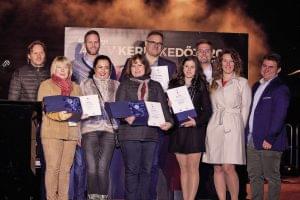
Award ceremony of the “Retailer of the Year” announced by Mastercard at our Wednesday barbecue-party
(for more info see pp 120)
I. T. – Sz. L.
Related news
Cleaner than clean
🎧 Hallgasd a cikket: Lejátszás Szünet Folytatás Leállítás Nyelv: Auto…
Read more >The price of growth – the well-working Coop approach: An interview with Dr István Rédei, president-CEO of COOP Star Zrt.
🎧 Hallgasd a cikket: Lejátszás Szünet Folytatás Leállítás Nyelv: Auto…
Read more >An experience beyond scent
🎧 Hallgasd a cikket: Lejátszás Szünet Folytatás Leállítás Nyelv: Auto…
Read more >Related news
Tesco sets out store expansion plans in 2026 including five former Amazon Fresh sites
🎧 Hallgasd a cikket: Lejátszás Szünet Folytatás Leállítás Nyelv: Auto…
Read more >Brits Embrace At‑Home Celebrations While Germans Cut Back on Valentine’s Day Spending
🎧 Hallgasd a cikket: Lejátszás Szünet Folytatás Leállítás Nyelv: Auto…
Read more >







